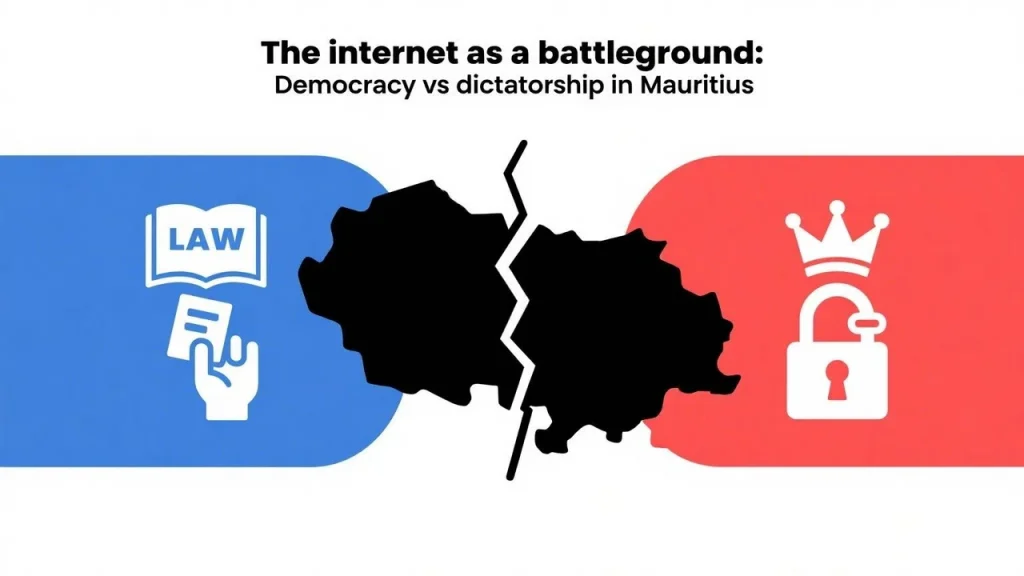- AFRINIC remains without elected leadership as Mauritius faces a deepening conflict between judicial rulings and executive action.
- ICANN CEO Kurt Lindqvist is criticised for recognising an unelected receiver despite court objections, intensifying democratic concerns.
Stalled elections and executive entrenchment
The African Network Information Centre (AFRINIC), one of the five regional internet registries, has descended into unprecedented paralysis. It currently operates with no elected board, no CEO, and no functioning electoral mechanism. This void has left AFRINIC under the control of a state-appointed receiver, raising serious governance concerns both regionally and globally.
The governance breakdown began in part due to prolonged legal disputes—most notably involving Cloud Innovation, a registered member of AFRINIC, whose court challenges exposed procedural failures and alleged allocation mismanagement. These cases culminated in intense judicial scrutiny, leading the Mauritian Supreme Court to issue rulings that restricted further state or external interference in AFRINIC’s operations.
Despite this, the Mauritian executive branch proceeded to install a receiver to manage the registry. In a move widely criticized by internet governance observers, Kurt Lindqvist, CEO of ICANN, chose to engage with this executive-backed appointee, effectively bypassing the Supreme Court’s authority and validating a non-elected governance structure. Lindqvist’s actions are now central to accusations that international coordination bodies are enabling authoritarian-style control over what should be community-governed institutions.
Also read: Cloud Innovation calls for AFRINIC wind-up after ‘impossible’ election standards
Also read: EXPOSED: The letter that reveals who was really benefitting from AFRINIC’s lawsuits
Judicial independence vs foreign-aligned executive power
At its core, this is no longer a technical failure. It is a live constitutional confrontation—one that has set Mauritius’ judiciary and executive on opposing tracks. The Supreme Court, operating within a legal framework rooted in British common law, has sought to preserve democratic oversight and legal accountability. The executive, aided by perceived external validation, has continued to govern AFRINIC without elections or community approval.
Critically, ICANN CEO Kurt Lindqvist has played a visible role in this conflict. Rather than upholding due process, Lindqvist has publicly supported the executive, lending legitimacy to a structure the courts have attempted to limit. By doing so, he has weakened not only the authority of the judiciary in Mauritius, but also the principles of multi-stakeholder, bottom-up governance that ICANN purports to promote.
This alignment risks setting a global precedent. If a national executive can suspend elections, install loyal oversight, and be recognised by international institutions, then democratic governance within internet infrastructure becomes optional. For regions where institutions are still evolving, this signals that legal rulings can be ignored if political support is secured.
Observers argue that AFRINIC is no longer the only concern. The silence from ICANN’s CEO demonstrates how power can shift quietly—from members and courts to executives and proxies. In doing so, Lindqvist may have unintentionally revealed the fragility of governance systems designed to be resilient, decentralized, and rule-based.
A test for internet governance—and constitutional resilience
Mauritius has long been seen as a democratic success story in Africa, with strong institutions and legal continuity. The AFRINIC affair, however, now highlights a fragility beneath that reputation. It shows how internet governance, often viewed as apolitical, can become the frontline of constitutional erosion.
The struggle is not just local. It affects how the global internet will be governed in the years ahead. If AFRINIC remains under unelected control, and if ICANN’s leadership continues to ignore judicial rulings, other registries and networks may find themselves subject to similar interference.
This is a turning point. The internet as we know it is meant to be open, accountable, and governed by those it serves. When that governance is captured—silently, without resistance, and with international complicity—it ceases to be democratic. The events in Mauritius should serve as a warning: democracy in internet governance must be defended just as it is offline.

